Hard-Boiled Poker Year in Review (1 of 3)
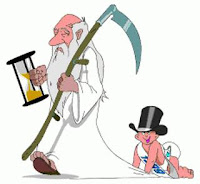 At the start of 2008, I thought I’d try something different and post each weekday, rather than every other day as I had been doing before. Took me a while, but I’d finally figured out most folks tend to check in on the blogs during the week (while at work, natch), and so I took it as a challenge to give ’em something new when they did.
At the start of 2008, I thought I’d try something different and post each weekday, rather than every other day as I had been doing before. Took me a while, but I’d finally figured out most folks tend to check in on the blogs during the week (while at work, natch), and so I took it as a challenge to give ’em something new when they did. We’ve reached the end of the calendar, and somehow I did it -- at least one new post each weekday, plus a good number of weekend extras along the way, too. Added up to a total of 333 posts for the year (prior to this one). I’m not sure at the moment if I want to try the same tactic in 2009 -- lemme know what youse think.
On the one hand, I certainly don’t want to sacrifice quality for quantity. Then again, I’ve found it to be a pretty rare occurrence to wake up without having at least something to say about the game we love, be it “the rumble” (how others are talking about poker), “on the street” (my own games), “shots in the dark” (strategy/theory), “high society” (what the pros are doin’), or “by the book” (my latest read).
I’m gonna split the “year in review” stuff up into three posts, so this one covers January-April. More to come.
January
 As the year began, the Absolute Poker insider cheating scandal was still fresh in our minds. I wrote one post early on, Absolute Apathy (1/4), which commented on the lack of attention the scandal seemed to be drawing. Then a week later I wrote a response to that less-than-comprehensive report from the Kahnawake Gaming Commission on the Gaming Associates’ audit of Absolute, Something is Missing Here (1/12).
As the year began, the Absolute Poker insider cheating scandal was still fresh in our minds. I wrote one post early on, Absolute Apathy (1/4), which commented on the lack of attention the scandal seemed to be drawing. Then a week later I wrote a response to that less-than-comprehensive report from the Kahnawake Gaming Commission on the Gaming Associates’ audit of Absolute, Something is Missing Here (1/12). Had a “shot in the dark” in there -- Poker Is Where It’s At (1/5) -- which offered a brief reflection on the metaphorical richness of poker. That idea that poker is somehow “like” everything.
A few days later I was posting about Josh “J.J. Prodigy” Field, the rampant (and unrepentent) online cheater who was using his 18th birthday as an occasion to seek forgiveness. The post was titled Uncorrected Personality Traits That Seem Whimsical In a Child May Prove to Be Ugly In a Fully Grown Adult (1/15). One commentor nominated that one for the “poker blog post title of the year award.” Indeed, looking through the rest of the year, I might well have peaked early there.
Toward the end of the month I did a bit of speculating about the legal situation for online poker, asking Do We Want Online Poker Regulated? (Part One [1/24] & Part Two [1/25]). The conclusion there ended up being “We’re between a rock and a hard place. We don’t want the feds to regulate online poker, but the present system of voluntarily-accepted regulation isn’t working very well, either.”
Finally, I reported on some weird shenanigans over at UltimateBet, including the ability of two players to log into the same account from different locations. That post -- UnBelievable (1/29) -- also mentions even bigger trouble for UB brewing over in the forums, which is why I list it here.
February
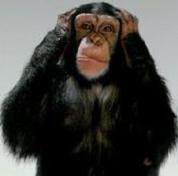 Had another “shot in the dark” early on called Poker “Reality” (2/5) in which I brought in one of my favorite fictionalists, Vladimir Nabokov, to help me discuss how the notions of “reality” become mighty slippery in the context of poker. Had a couple of other literary-type posts in February, including one on Raymond Chandler (2/14) and another on Alain Robbe-Grillet (2/19) who died on the 18th.
Had another “shot in the dark” early on called Poker “Reality” (2/5) in which I brought in one of my favorite fictionalists, Vladimir Nabokov, to help me discuss how the notions of “reality” become mighty slippery in the context of poker. Had a couple of other literary-type posts in February, including one on Raymond Chandler (2/14) and another on Alain Robbe-Grillet (2/19) who died on the 18th.Had a post in there called Absolute Poker “Security Summits” (In Search Of) (2/13), the title of which is self-explanatory. (Anybody else remember that bogus announcement about the summits?) Also, I had a fairly popular post in February called Reporting on Absolute Poker; or, If a Tree Falls (2/22) in which I compiled a ton of links to various writings on the interweb about the AP scandal. Have had a few people ask me to point them to that particular post as they searched for info.
Another frequently-hit post from February was The Wrong Focus (Another Cheating Pro) (2/15). That one referred to yet another example of an established pro casually letting slip how he’d taken over for someone during the latter stages of an online tourney. That issue would continue to linger throughout the year, and I think by now what is “generally accepted” has changed a bit from a year ago.
A post titled On Poker Mags (2/20) reflected a bit on poker media and its apparent role, a subject revisited a week or so later in Playing Favorites (2/29). The latter one focuses on how the “name” pros get more attention than others from tourney reporters -- kind of an interesting post for me to go back and read, since a week or two after that I would be asked to go report on the 2008 World Series of Poker (and thus face those very decisions about how best to report).
March
 On the Poker Haters (3/4) tries to examine the various reasons (psychological, moral, ethical) why some people object so strenuously to others playing poker.
On the Poker Haters (3/4) tries to examine the various reasons (psychological, moral, ethical) why some people object so strenuously to others playing poker. March was the month the UltimateBet scandal was first officially acknowledged by UB. My quickie post Cheating “Scheme” Confirmed at UltimateBet (3/8) basically just shared the news.
A few days later I was noting in Tick, Tick, Tick: 60 Minutes Now Looking at Absolute Poker (3/11) that it had begun to appear that the scandals were going to get wider attention than AP or UB had probably anticipated.
There was a legal update in there called The Good, the Bad, and the UIGEA (3/14). Shortly after that I ended up commenting a bit on the Poker Players Alliance’s not-so-smooth handling of pressure to comment on the ongoing online poker scandals in One (Ex-)Member Inspires PPA to Alter Its Mission Statement (3/20) & PPA Can Do Better (3/21).
Took a quick trip to California in March where I managed to play a brief, not-too-eventful session of live poker, documented in Live Poker: Oaks Card Club, Emeryville, CA (3/19). Finally, the month ended with me achieving Silver Star on PokerStars, an event I chose to mark with that embarrassing photo of myself as a kiddie dressed as a cowboy in A New Sheriff in Town (3/31).
April
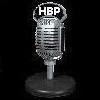 I launched my podcast, The Hard-Boiled Poker Radio Show, on April Fool’s Day. Chose that day just in case it flopped, that way I could always say it was a joke (or a jopke). The HBPRS didn’t change the world, but it didn’t flop, either, and with a little help from my friends I managed to produce ten episodes over the course of the next nine months. (Have Episode No. 11 in the works, by the way.)
I launched my podcast, The Hard-Boiled Poker Radio Show, on April Fool’s Day. Chose that day just in case it flopped, that way I could always say it was a joke (or a jopke). The HBPRS didn’t change the world, but it didn’t flop, either, and with a little help from my friends I managed to produce ten episodes over the course of the next nine months. (Have Episode No. 11 in the works, by the way.)Early in April there was a pretty big House hearing to discuss the proposed regulations for the Unlawful Internet Gambling Enforcement Act of 2006. I documented that hearing fairly comprehensively in UIGEA Regs: Burden Without Benefit? Without a Doubt (4/2). Soon after that we saw a Bill to Block Finalization of UIGEA Regs Proposed (4/12), then It’s Time to Fold: Frank & Co. Tell Feds to Cease “Sisyphean Task” of Finalizing UIGEA Regulations (4/23). Turned out “Frank & Co.” and other legislators who proposed such bills this year were actually the ones who most resembled Sisyphus, I think.
April was when we first started hearing rumors that the WSOP ME final table might be delayed. Sounded crazy at the time, but the rumors would turn out to be true. I first opined on the subject in WSOP To Create “Sequel” for Main Event Final Table? (4/7). Didn’t like the idea then. Still don’t.
I see a few other posts of note in April. Here’s to the Great Beyond (4/11) was an elegy of sorts to one of my favorite podcasts, Beyond the Table, the hosts of which decided then to call it quits. Tolstoy’s Ivan Ilyich and the Meaning of Card Playing (4/16) zones in on a few passages in the Russian writer’s short novel. And Worlds Within Worlds (4/24) talks about a visit I had to the barber shop in which I was reminded of poker’s relatively modest place in our culture.
The month ended with the blog reaching its second birthday, and me finishing second in Saturdays with Pauly (my best finish in 2008 in Dr. P’s weekly PLO event). Both events are documented in Celebrating Seconds (4/28).
Finally, I wouldn’t have thought to include Flopping Quad Aces is Usually Fun (4/18) in this here wrap-up, but I’m noticing there I am telling about a hand I played on Bodog in which I disconnected halfway through. I had flopped quad aces on the hand, and so was not too happy when I got knocked off. However, I did win the pot. I only mention it here because it sounds like a somewhat similar situation to the one involving Phil Hellmuth & DOUBLEBALLER two weeks ago. (Except there, of course, the pot was erroneously awarded to a losing player.)
Labels: *the rumble, 2008 Year in Review
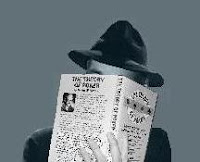

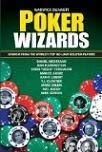





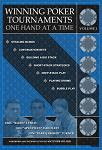
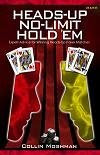



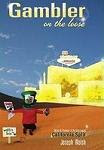

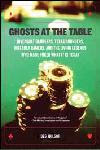

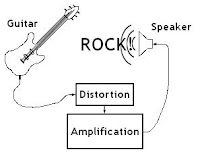


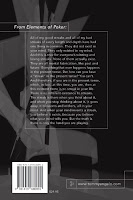





 in middle position and open-raised pot (to 85 cents). A couple of players folded, then TinyTim reraised pot (to $2.90), leaving himself about $12 behind. When the table folded back to me, I decided I liked my other two cards well enough to go ahead and gamble, and we reraised each other until TinyTim was all in. Turned out he had
in middle position and open-raised pot (to 85 cents). A couple of players folded, then TinyTim reraised pot (to $2.90), leaving himself about $12 behind. When the table folded back to me, I decided I liked my other two cards well enough to go ahead and gamble, and we reraised each other until TinyTim was all in. Turned out he had 


 , and when a third club came out on the river, he took the pot.
, and when a third club came out on the river, he took the pot.


 . Kind of an iffy hand (be a lot nicer with the ace instead of the king), but good enough to try to see a cheap flop with it. Three players limped, and I did as well. So did the player to my left. Then TinyTim raised to $1.25 -- not quite a full-pot raise. The button called the raise, as did the small blind. The big blind folded, a couple more players called, then the short-stacked player to my left decided to push all in for $4.20 total.
. Kind of an iffy hand (be a lot nicer with the ace instead of the king), but good enough to try to see a cheap flop with it. Three players limped, and I did as well. So did the player to my left. Then TinyTim raised to $1.25 -- not quite a full-pot raise. The button called the raise, as did the small blind. The big blind folded, a couple more players called, then the short-stacked player to my left decided to push all in for $4.20 total.
 . I had a king-high flush draw, and some faint backdoor possibilities. We all checked to TinyTim who made a frightened-looking bet of $2. The sort of bet that looks like he has a couple of kings or queens, or maybe something that completely whiffed like J-10-9-8. The other two players still with chips both called, and sitting there looking at 16-to-1 or whatever, I called as well.
. I had a king-high flush draw, and some faint backdoor possibilities. We all checked to TinyTim who made a frightened-looking bet of $2. The sort of bet that looks like he has a couple of kings or queens, or maybe something that completely whiffed like J-10-9-8. The other two players still with chips both called, and sitting there looking at 16-to-1 or whatever, I called as well. . Now I had two flush draws, plus a wrap straight draw. I was almost interested enough to bet out at this point, but when it checked to me I checked as well, mentally gauging what size bet I’d be willing to call in this spot. TinyTim again made a bet of $2, and again both of the other players called. With $38 or so in the middle, I was more than glad to part with two more bucks to see the river.
. Now I had two flush draws, plus a wrap straight draw. I was almost interested enough to bet out at this point, but when it checked to me I checked as well, mentally gauging what size bet I’d be willing to call in this spot. TinyTim again made a bet of $2, and again both of the other players called. With $38 or so in the middle, I was more than glad to part with two more bucks to see the river. . I’d made a club flush, though the highest club in my hand was a seven. And with five other players involved, I wasn’t confident I had the best hand. It again checked to me, I checked, and TinyTim checked behind.
. I’d made a club flush, though the highest club in my hand was a seven. And with five other players involved, I wasn’t confident I had the best hand. It again checked to me, I checked, and TinyTim checked behind.
 .
.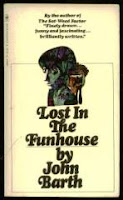



 . The big blind checked, Ambrose bet, I raised, the big blind folded, and Ambrose called.
. The big blind checked, Ambrose bet, I raised, the big blind folded, and Ambrose called.  , pairing the board a second time. Ambrose checked, and I hesitated before betting the buck. He check-raised me (ack), I called, and he turned over
, pairing the board a second time. Ambrose checked, and I hesitated before betting the buck. He check-raised me (ack), I called, and he turned over 
 .
. 
 in late position. I called after watching most of the table limped in, including Peter. Flop came all diamonds. Table folded to me, and it looked like Peter was the only one interested in sticking around. And he was excited, too! Perfect.
in late position. I called after watching most of the table limped in, including Peter. Flop came all diamonds. Table folded to me, and it looked like Peter was the only one interested in sticking around. And he was excited, too! Perfect. . D’oh! That pot ended up pushing $20, I think.
. D’oh! That pot ended up pushing $20, I think.












